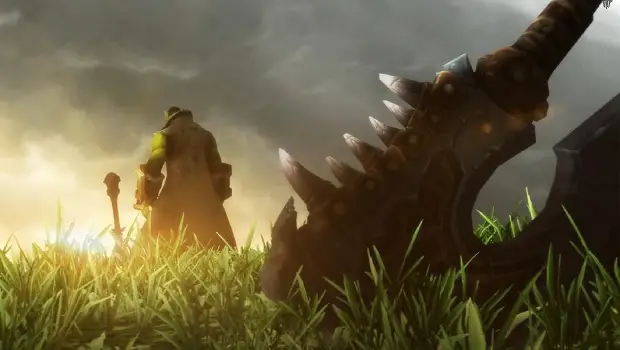Officers’ Quarters: One on one

This week’s questions all revolve around having one-on-one conversations with your players. What’s the best approach? Read on to find out!
You make a good point, Zareth. Unless someone is actively and consistently causing your raids to fail and shows no sign of improving skill or attitude in the future, it’s better to put up with them than replace them.
However, having specific, written guild policies about expectations allows you to tell players what they must do to shape up. And it also gives you an out if you do eventually need to cut ties with him or her.
What those policies consist of all depends on your guild’s culture. For a progression guild, publicly calling out players who fall short of expectations is a minor but effective way to let them know you’re not happy with them. It serves two purposes: it pressures the player to step up and it lets everyone else know that you’re paying attention, that you aren’t just letting people slide. The next step after that is to bench them when you can afford it. Removing them from the raid team may be your last resort. Ideally, you’ll want to keep an eye out for a replacement before this happens.
I also think if a player is truly trying their best, they should be given the benefit of the doubt and the chance to make incremental progress. It may need to happen in alt runs or farm bosses, but they should have that opportunity.
To figure out whether they’re trying to improve, you’ll need to have a one-on-one conversation. That leads us to the next question…
Leading a guild is absolutely similar to managing employees in a real-world business. Don’t take my word for it, however. Harvard Business Review agrees.
I think the bulk of good leadership occurs during one-on-one conversations. Group meetings, whether in a business or in a guild, are largely ineffectual in my experience. They’re good cauldrons for brainstorming solutions to specific, smaller problems, but they’re terrible at addressing root issues. Whether you’re trying to improve a player’s awareness or asking them to tone down their attitude in guild chat, you aren’t going to fix those situations with a general forum post. You need to hash it out with that person individually.
They will be far more receptive to speaking with you and they will be far more likely to be honest with you about their situation in a private convo versus a group setting. Taking the time for a one-on-one session also shows that you’re invested in them as a member of the group.
Setting goals is an important component of that talk, as Kuato mentions. It’s always best to end with a concrete goal to strive for in the future, wherever applicable. Such goals could be improving their overall average D/HPS over the next two weeks or never making snarky comments about that resto shaman ever again.
The flexible nature of heroic now forces officers into that position of telling someone they are not skilled enough, versus previously just telling them there were no more slots available. I would love to see some feedback from you on the best way of telling someone that they aren’t performing at a level high enough to bring them, in an environment in which there is now available slots.
The only correct way to do this is to have a private conversation. Timing is important here. Right before or right after a raid are bad times for it. In the first case you risk distraction during the raid, and in the second case people are generally tired and/or cranky right after. Try to catch them on a nonraid night.
You also want to have some very specific data prepared. Don’t base your judgment on vague impressions. “You got pinned by twice as many spears as the next player versus Darmac” or “Our raid’s total average DPS is 18% lower with you than without you” make for more compelling arguments than simply stating, “I don’t think you’re good enough for heroic BRF.” The latter is subjective and they can refute it. The former are subjective data and can’t be handwaved away.
Approaching these conversations with the attitude of “You’re bad and we’re benching you” is confrontational. A better approach is “Let’s work together to figure out how we can improve your performance.” The end result may be the same, but the way you deliver the message makes a huge difference.
Walk away from the conversation with a to-do list for the player in question: reading specific guides about the class, regemming/re-enchanting, consulting another player of the same spec, etc. Then follow up with them later to see if they did these things. If they haven’t and they don’t, then you can bench them without guilt. If they’re trying, then they deserve consideration for that. They may have a long way to go before they can rejoin your raids, but offering them hope is a significant motivating factor.
Or they may just get angry about it and /gquit. You never can tell how these situations will go. Either way they won’t be a drag on your raids anymore, and you’ll know you did what you could to help them.
/salute
Please consider supporting our Patreon!
Join the Discussion
Blizzard Watch is a safe space for all readers. By leaving comments on this site you agree to follow our commenting and community guidelines.
 @QuestVendor
@QuestVendor




